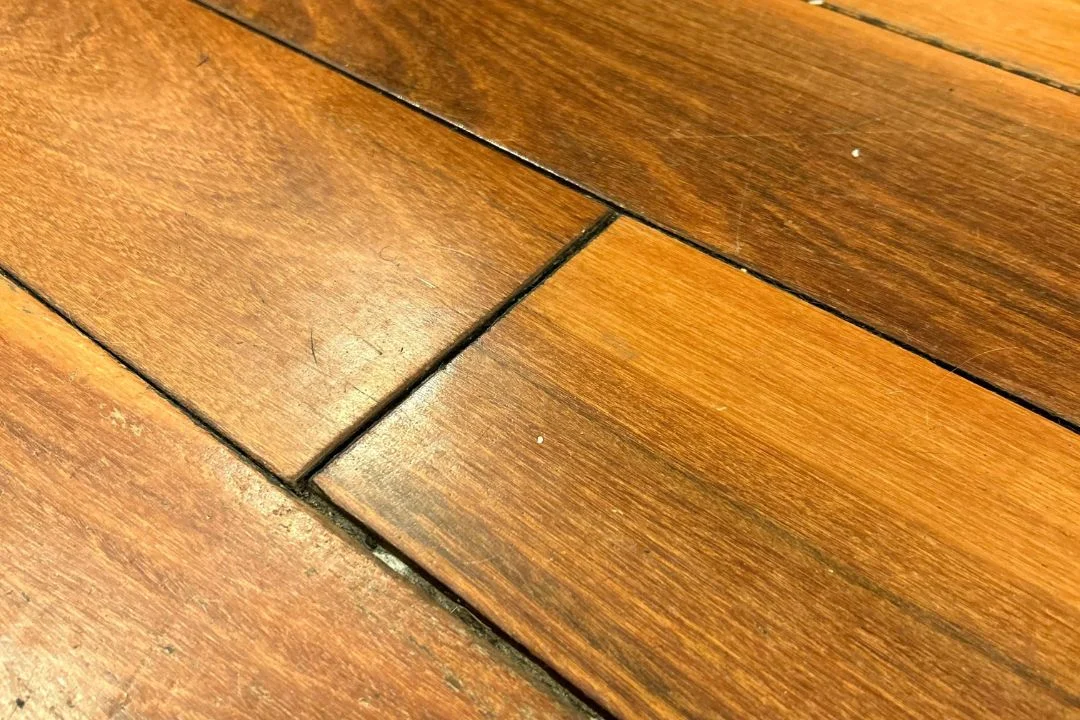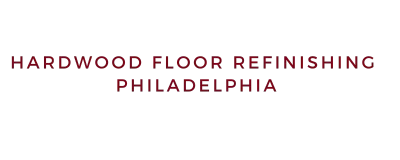Can You refinish pre-finished hardwood floors?

Yes, you can refinish pre-finished hardwood floors, but it’s a complex and potentially difficult task due to micro-beveled edges of pre-finished hardwood floors. Pre-finished floors have tough factory-applied finishes containing materials like aluminum oxide and hardened plastics, making the finish layers challenging to sand through. Options like polishing with products like Orange Glow, cleaning with pH-neutral cleaners, buffing, screen and recoating methods can help extend the lifespan before a full refinish is required on pre-finished floors.
Ready to transform your floors? Get a FREE On-Site Estimate from our experts!
We’ll provide a detailed cost breakdown so you know exactly what to expect. No obligations, just professional advice!
Call Now: +1 (267) 848-1629 Get Your Free EstimateThere are three main factors when considering refinishing pre-finished floors. First is the thickness of the existing wood and how much can be sanded without compromising structural integrity. Second is the condition of the wood underneath – severe staining or damage may make refinishing impossible. The third factor is the refinishing process itself – it requires thorough preparation like removing baseboards, filling gaps, repairing damage, then sanding the old finish off and applying and curing new coats.
The advantages of refinishing include restoring the floors’ original beauty and increasing longevity. Disadvantages are the high cost as well as it being labor-intensive requiring specialized equipment and expertise. Proper evaluation of the existing floor condition and weighing the costs versus benefits is vital before undertaking a refinishing project.
For those looking for professional assistance, our Top Hardwood Refinishing Philadelphia services can provide the expertise and care needed to tackle even the most challenging pre-finished floors.
What are Pre-Finished Hardwood Floors?
Pre-finished hardwood floors is a real hardwood that undergoes sanding, staining, and finishing processes at the factory before installation. This offers several advantages over unfinished hardwood flooring.
A key benefit is the extremely durable finishes used. Pre-finished hardwood features aluminum oxide finishes that are UV-cured, making it harder and more scratch-resistant than typical polyurethane finishes used on site-finished floors. The factory conditions also allow for a consistent look across all planks, with some pre-finished floors having up to 7 layers of protective poly coating compared to 2 to 3 coats on site-finished floors.
You can refinish pre-finished hardwood floors. While the micro-beveled edges can make refinishing trickier, most quality pre-finished planks still allow sanding down 1/32″ to 1/16″ and refinishing if needed, just like unfinished planks. Manufacturers make this possible by using relatively thick veneers, with some brands offering veneers up to 1/8″ thick.
Installation of pre-finished hardwood floors is very convenient with no sanding dust or fumes since the finishing is done at the factory. In some cases, you can walk on the floors immediately after installation. This minimal downtime allows other construction trades to keep working during installations. However, the visible seams between beveled edges may be unsightly to some. Color and width options may also be more limited compared to unfinished wood.
Does prefinished hardwood scratch easily?
No, prefinished hardwood does not necessarily scratch easily, but several factors determine its scratch resistance. The hardness of the wood species is a crucial factor. Harder woods like maple, hickory, and oak are more resistant to scratches compared to softer woods like pine, cherry, and walnut.
Another important factor is the type and quality of finish applied. Prefinished hardwood floors have multiple factory-applied coats of durable finishes like aluminum oxide-infused polyurethane or acrylic urethane. Higher-end prefinished floors often have thicker, more robust finishes offering better scratch protection. However, lower-quality or thin finishes may wear down faster, exposing the wood to scratches.
Proper maintenance also plays a vital role. Using felt pads under furniture, regularly cleaning, and avoiding dragging heavy objects can significantly reduce scratches. Recoating the floors periodically with a compatible finish can restore the protective layer and enhance scratch resistance.
While no hardwood floor is completely scratch-proof, prefinished floors may show scratches more prominently due to their uniform, smooth finish compared to site-finished floors with a varied texture that can camouflage scratches better. However, this is subjective and depends on personal preferences.
Homeowners have varied experiences with prefinished hardwood scratch resistance. Some find them prone to scratches even with light use, while others consider them relatively scratch-resistant with proper care. Setting realistic expectations is important, as hardwood floors will inevitably develop character over time through normal wear and tear.
Can you paint a prefinished hardwood floor?
Yes, technically you can paint over prefinished hardwood floors, but most experts don’t recommend it.
Why don’t experts recommend painting prefinished hardwood floors? There are a few key reasons:
- The paint may not adhere properly to the prefinished surface, which can cause peeling or chipping over time. Prefinished floors have a durable factory-applied finish that acts as a sealant, preventing the new paint from gripping well unless the surface is scuffed and deglossed.
- Painting covers up the existing finish, which means you can’t easily sand it down to refinish or restain the hardwood in the future. This limits your renovation options going forward.
Despite these downsides, some DIYers have had decent results when painting prefinished floors carefully. The key is meticulous preparation like cleaning and deglossing, using a good bonding primer, and multiple coats of quality porch/floor enamel paint. Done right, this can provide a painted finish that lasts reasonably well, especially in lower traffic areas.
However, the consensus remains that painting is not as durable or long-lasting as the original factory finish. Most hardwood floor professionals view paint as more of a temporary, lower-cost solution that will likely require repainting sooner compared to refinishing.
For a long-term color update, hiring to have the hardwood floors professionally sanded down past the existing finish and then refinished or restained in your desired new shade is the recommended approach over painting.
If you just have minor scratches or wear on prefinished floors, using a UV-cured floor refresher product can help revive and protect the existing factory finish much more easily than painting over it completely.
How Many Times Can Pre-Finished Hardwood Floors Be Refinished?
The number of times pre-finished hardwood floors can be refinished depends on several factors. The type of hardwood flooring and thickness of the wear layer are important.
Solid hardwood planks made of wood all the way through can potentially be refinished 5 to10 times as long as there is enough thickness left after sanding. Solid woods like oak, maple, and Brazilian cherry have this refinishing capability.
In contrast, engineered hardwoods have a thinner veneer of real hardwood over composite wood layers. If this veneer is very thin (under 2mm usually), it may only allow one or two refinishes before hitting the composite base and being unable to refinish further.
So in summary, a good quality pre-finished solid hardwood floor can likely be refinished 2 to 4 times if properly cared for. But lower quality floors with thin veneers or excessively hard finishes may not be good candidates for refinishing.
Other factors like the hardfloor’s age, condition, beveled edges and desired look after refinishing can further impact the refinishing process and number of possible cycles.
How do Micro-Beveled Edges Complicate the Refinishing Process?
Micro-beveled or beveled edges on hardwood floors pose a significant challenge during the refinishing process. These edges are typically created by manufacturers to allow the finish to adhere properly to the corners, as varnish does not cling well to sharp 90-degree edges.
The first complication arises from the grooves or crevices formed between the beveled boards. These grooves tend to accumulate dirt and grime over time, making the cleaning process more labor-intensive. Simple buffing or recoating may not be sufficient, and techniques like chemical stripping, scraping with tools like a V-groove scraper, or heavy-grit sanding may be required to adequately prepare the surface.
Sanding out the micro-bevels is often recommended to achieve a smooth, uniform appearance across the entire floor. However, this process is time-consuming and costly, as it involves removing more material than a standard refinishing job. The thickness of the wear layer or veneer must be taken into consideration, as excessive sanding can potentially expose nails or ruin the floor entirely.
Removing deep bevels, such as those measuring 1/8 inch or more, can be particularly challenging. In such cases, you may need to consider more extensive measures like routing the grooves or patching in new boards, further increasing the complexity and cost of the project.
Another factor that complicates the refinishing process is the type of coating used on pre-finished floors. These coatings can be thick and difficult to remove, requiring specialized equipment like drum sanders with abrasive wire brushes or groove-sanding tools.
The decision to sand out the micro-bevels or retain them is often left to the homeowner’s preference. While removing the bevels can provide a sleek, uniform look, it may also result in excessive wood removal and potential damage to the floor. Keeping the bevels may require more diligent maintenance to prevent dirt accumulation in the grooves.
What is the Screen and Recoating Method for Pre-Finished Hardwood Floors?
The screen and recoating method, also called “screen and coat” or “buff and coat,” is a process used to refresh the protective polyurethane finish on pre-finished hardwood floors without fully sanding down to the bare wood. It involves lightly abrading the existing finish, cleaning, and applying one to two new coats of polyurethane to rejuvenate worn or scratched floors before a full refinish is needed.
The key-steps in screen and recoat method for refinishing pre-finished hardwood floors are:
- Inspection: First, the floor is thoroughly inspected to ensure it is suitable for screening and recoating. Floors with significant damage, waxes, silicone cleaners, or aluminum oxide coatings may not be compatible.
- Screening: Using a floor buffer with an abrasive screening pad (usually 120 to 180 grit), the top layer of the existing polyurethane finish is lightly abraded or “screened.” This roughens up the surface to aid in the adhesion of the new finish coat.
- Cleaning: After screening, the floors are thoroughly vacuumed and cleaned with a damp mop and mineral spirits to remove all dust and debris. Proper cleaning is crucial for adhesion.
- Recoating: One to two fresh coats of high-quality polyurethane finish are then applied, often using a T-bar applicator or lambswool applicator. Water-based finishes like Bona Traffic HD or oil-based finishes like Varathane Diamond Wood Finish can be used, depending on compatibility.
- Drying: The new finish coats are allowed to fully dry and cure according to the manufacturer’s instructions, typically over 24 to 48 hours with good ventilation.
Professional contractors typically charge $3.5 to $6.50 per square foot for screen and recoat services. It’s recommended to invest in high-quality commercial-grade finishes containing a higher solid content for a more durable result.
Get in Touch With Best Flooring Contractor in Philadelphia To Refinish Prefinished Hardwood Floors
At HardwoodRefinishPhiladelphia, we specialize in refinishing prefinished hardwood floors in the Philadelphia area. Our team of experts has extensive experience in handling all types of hardwood floors, including prefinished hardwood. We use state-of-the-art equipment and techniques to ensure a flawless finish, and we offer a range of services, including dust-free sanding and eco-friendly finishes.
If you’re considering refurbishing your pre-finished hardwood floors or have any questions, don’t hesitate to contact us. We’ll be happy to provide you with a free consultation and quote, tailored to your specific needs.
